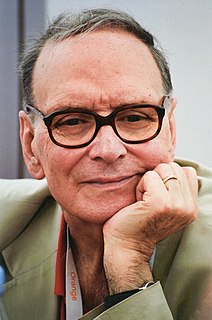A Quote by Raj Patel
I do think we have a food problem. In 2006, which is the year for which we have the latest data, 35.5 million Americans were food insecure. That means there are 35.5 million Americans who are so hard up at some point during the year that they didn't know where their next meal was coming from. That's a lot of Americans. They don't get reported very much because there's nothing spectacular about people skipping a meal because they're poor. The media tends to ignore that, just as it ignores the sort of chronic food shortages elsewhere in the world.
Related Quotes
Right now you're seeing more and more families reporting that they are skipping meals. They're having to give up meat. Mothers are foregoing food so their kids can have something. People are growing their own vegetables, not because they've gone organic, but because it's one of the few assured sources of food they have. For low-income Americans food is costly right now. The price of food has been going up, and wages haven't. This puts working Americans in a real bind. The fact that the mainstream media hasn't reported it doesn't mean that it's not happening.
The Black public sector middle class teachers, policeman, firemen, and post office workers, those jobs have been on the decline but there hasn't been a corresponding increase in the private sector. What is especially painful is government policy bailed out the banks without making them make reinvestments for rebuilding. The result is 53-million Americans are food insecure, 50-million Americans are in poverty, 44 million are on food stamps, 26 million are looking for a job.
When you talk about Social Security, it's not just enough to say, we're looking at you, this really matters. It's the fact that a million Americans think it matters. Oh, wait, it's 2 million Americans think it matters. No, it's 4 million Americans. It's 6 million, wait, it's 10 million, it's 50 million Americans who care about this. That's how we're going to make change.
And so, Thanksgiving. Its the most amazing holiday. Just think about it — it's a miracle that once a year so many millions of Americans sit down to exactly the same meal as one another, exactly the same meal they grew up eating, and exactly the same meal they ate a year earlier. The turkey. The sweet potatoes. The stuffing. The pumpkin pie. Is there anything else we all can agree so vehemently about? I don't think so.
The Food Stamp Challenge, which challenges higher-income families to live as if they are on food stamps, estimates that a person on food stamps has a budget of about $1.25 per meal. In other words, a family on food stamps must buy an entire meal per person for less than the cost of an average cup of coffee.
Because of the industrialization of agriculture -- using massive amounts of fossil fuel -- only 2 percent of Americans work in farming. And yet they produce enough food to feed all 300 million Americans, with plenty left over for export. When are liberals going to break the news to their friends in Darfur that they all have to starve to death to save the planet?
I was born in 1928, so in 1943, 1944, we had the war in Rome. There were a lot of hardships, a lack of food, many shortages. So when I worked with the Americans, the English, and the Canadians soon after the war, when I played with them, they paid me with food. That will give you an idea how widespread poverty was at that time.
Let’s get one thing straight: Mexican food takes a certain amount of time to cook. If you don’t have the time, don’t cook it. You can rush a Mexican meal, but you will pay in some way. You can buy so-called Mexican food at too many restaurants that say they cook Mexican food. But the real food, the most savory food, is prepared with time and love and at home. So, give up the illusion that you can throw Mexican food together. Just understand that you are going to have to make and take the time.
The one thing that everyone knows about America is people will say, I know my rights. One of those rights is the right to organize. When workers do get together and organize and drive up their wages, they are much, much better off. I think this is one integral part of food policy. We can't talk about increasing the price of food without figuring out how working Americans are going to pay for that.






























